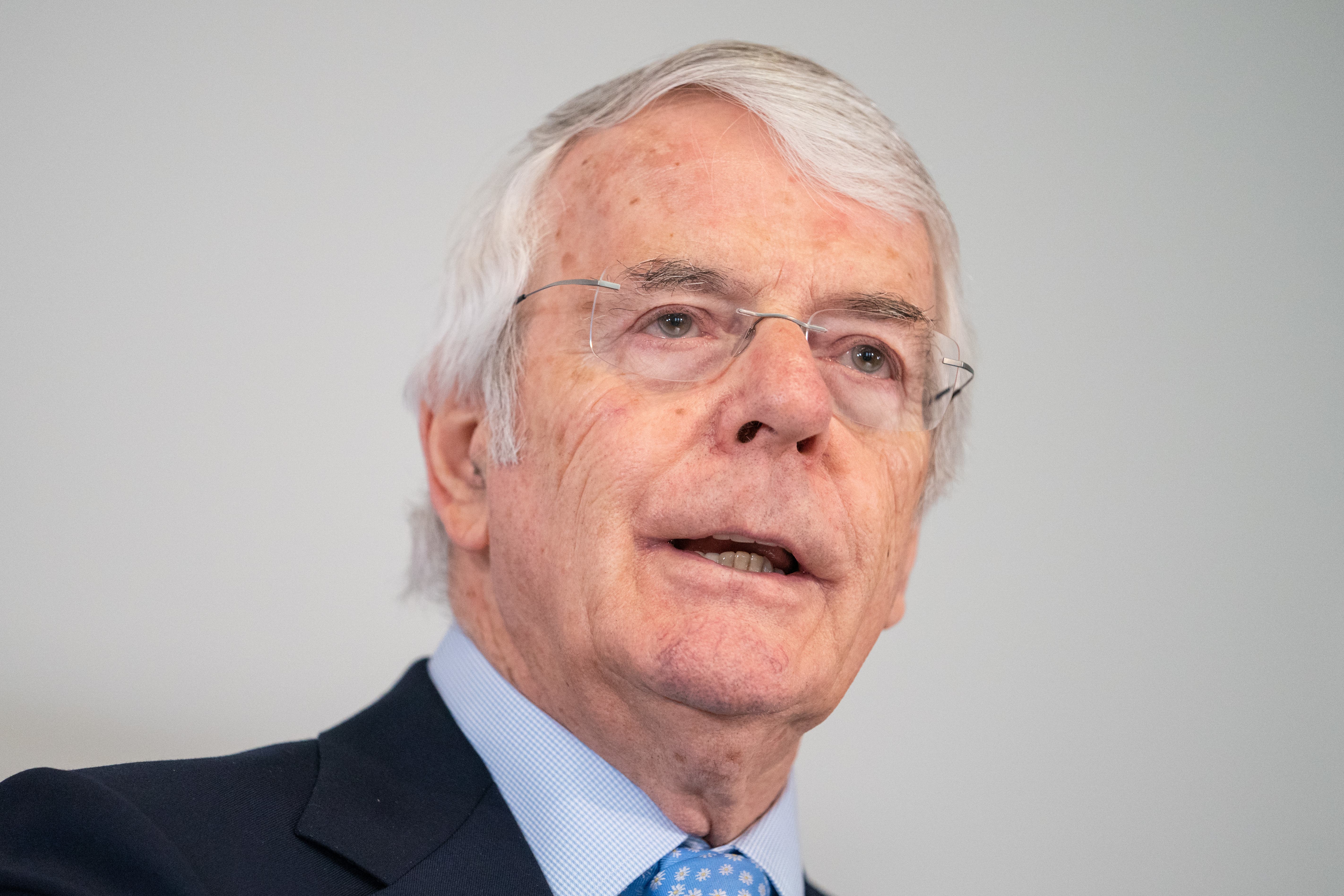Sir John Major warns against ‘excessive zeal’ to be tough on crime
The former Tory PM called for a stronger focus on rehabilitation.

Your support helps us to tell the story
From reproductive rights to climate change to Big Tech, The Independent is on the ground when the story is developing. Whether it's investigating the financials of Elon Musk's pro-Trump PAC or producing our latest documentary, 'The A Word', which shines a light on the American women fighting for reproductive rights, we know how important it is to parse out the facts from the messaging.
At such a critical moment in US history, we need reporters on the ground. Your donation allows us to keep sending journalists to speak to both sides of the story.
The Independent is trusted by Americans across the entire political spectrum. And unlike many other quality news outlets, we choose not to lock Americans out of our reporting and analysis with paywalls. We believe quality journalism should be available to everyone, paid for by those who can afford it.
Your support makes all the difference.Former prime minister Sir John Major has warned against “excessive zeal” to be tough on crime leading to “unwise policy”, as he said the UK is locking up too many offenders.
The ex-Tory leader argued that “pointless” short-term prison sentences are being imposed in cases where non-custodial measures would be more effective and fair.
He also urged the new Justice Secretary to abandon Dominic Raab’s proposals to give ministers more power to block Parole Board decisions, warning the system should not be unduly pressured by public campaigns.
Sir John was prime minister when his home secretary, Michael Howard, told the party conference in 1993 that “prison works”.
But in Tuesday’s intervention – the first on prisons and sentencing since his premiership – he called for a stronger focus on rehabilitation.
In a speech to the Prison Reform Trust at the Old Bailey, Sir John said: “Stern sentences for violent crimes are necessary, and the instinct to protect the public is laudable ‒ but we should beware that excessive zeal to be tough on crime does not lead us into unwise policy.”
In the year to June 2022, 43,000 people were sentenced to a prison term, of which fewer than two in every five had committed a violent offence.
“The UK has the highest imprisonment rates in Western Europe ‒ and yet I find it hard to believe we British are uniquely criminal,” he said.
“Many prisoners ‒ far too many, I believe ‒ are sentenced to short-term imprisonment when other sentences would be preferable. In some cases, care and medical attention are called for rather than prison.
“To be blunt ‒ my suspicion is that many short sentences are pointless and that a non-custodial sentence would be more effective and, perhaps, more fair.”
The former prime minister also warned of “intolerable” conditions in some prisons, where two to three inmates are sometimes held in a Victorian cell built for one person.
“To have inmates held in worse conditions than in Victorian times is an indictment of policy that is hard to ignore,” he said.
As the public would rightly expect, we are pressing forward with important reforms to strengthen the parole system and transform the prison estate to keep dangerous offenders behind bars and cut crime
Sir John defended the Parole Board’s ability to make sound decisions, pointing to the low reoffending rate – one in 200 prisoners – in the three years following release.
“This would suggest that the Parole Board is not a bunch of gullible softies,” he said.
Plans introduced by Mr Raab – who resigned from cabinet last month – to increase ministerial powers to veto board decisions may lead to a “slippery slope,” Sir John told the audience.
“I understand that the former Justice Secretary sought the power to veto decisions made by what is allegedly the independent Parole Board, to release prisoners convicted of serious crimes,” he said.
“The problem with this is that I do not see how (or why) the Justice Secretary would be able to reach a more just decision than the Parole Board.
“Any single Government Minister – however able or well-meaning – would be far more vulnerable to public campaigns and, under pressure, to make a harsher decision to appease them.
“I do not think that any politician should have that power, and I hope the new Justice Secretary will reconsider or – if he does not – that Parliament will deny it.”
A Ministry of Justice spokesperson said: “As the public would rightly expect, we are pressing forward with important reforms to strengthen the parole system and transform the prison estate to keep dangerous offenders behind bars and cut crime.”
“We have made great strides in steering offenders away from crime by getting them off drugs and in to work, and we are investing £550 million to further reduce reoffending”